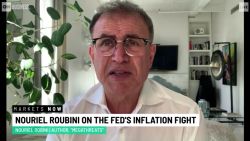Washington’s attacks on stock buybacks haven’t scared away Corporate America.
Buybacks by corporate clients of Bank of America Merrill Lynch have spiked 91% to $12.2 billion so far this year, the firm said in a report this week.
Completed stock repurchases surged last week to their fourth-highest weekly level since Bank of America began tracking the metric in 2009.
Taken together, Bank of America said buybacks are “on pace for another record year” in 2019.
Corporations, not retail investors or large institutions, appear to be the driving force behind the sharp rebound on Wall Street this year.
Coca-Cola (KO) announced plans on Thursday to repurchase another 150 million shares — worth about $7 billion at the current stock price.
Companies are supporting the market rally
Excluding corporate buybacks, Bank of America said its clients have sold individual stocks for the last two weeks.
Last week, just two of the 11 major sectors of the stock market experienced inflows if buybacks are excluded, the bank said.
It’s a fresh reminder of how much the decade-long bull market has relied on companies themselves to be a major source of demand.
Although corporate clients of Bank of America bought $12.2 billion of stock so far in 2019, hedge funds have only acquired $363 million. Excluding ETFs, hedge funds have been net sellers of $2.7 billion of equities.
Institutions, including pension funds, and retail investors have likewise been net sellers despite the rebound in stocks. Both groups have unloaded about $2.4 billion of equities.
Buyback announcements did slow a bit during earnings season. US companies announced $5.8 billion of buybacks per day, down 35% from a year ago, according to TrimTabs Investment Research.
Announcements were concentrated in just two companies: Union Pacific (UNP), which announced plans to repurchase $22.4 billion of stock, and Cisco Systems (CSCO), which announced an additional $15 billion of buybacks.
Should buybacks be limited?
The steady drumbeat of buybacks comes despite the political backlash against the tactic. Many Democrats and at least one major Republican have expressed concern that US companies aren’t investing enough of their windfall from the 2017 tax cut into job-creating investments.
Although Corporate America announced $1 trillion of stock buybacks in 2018, the tax law has yet to inspire a lasting boom in business spending on things like factories, software and new equipment.
“Corporate boardrooms have become obsessed with maximizing only shareholder earnings to the detriment of workers and the long-term strength of their companies,” Senators Bernie Sanders and Chuck Schumer wrote in a New York Times Op-Ed earlier this month.
The lawmakers argued that Congress should limit stock buybacks — a move that some believe would be short-sighted.
“If they’ve got nothing to do with the money, get it out of there,” David Kelly, chief global strategist at JPMorgan Funds, told CNN Business’ Julia Chatterley. “I’m afraid we’re trying to lock money into corporations, force them to do things with their money things they wouldn’t otherwise do.”
But the backlash has gone bipartisan.
Republican Senator Marco Rubio recently called for ending the tax advantages that share buybacks enjoy over dividends.
“We have too often failed to make the well-being of working Americans the terms for market success,” Rubio wrote in a report.






















